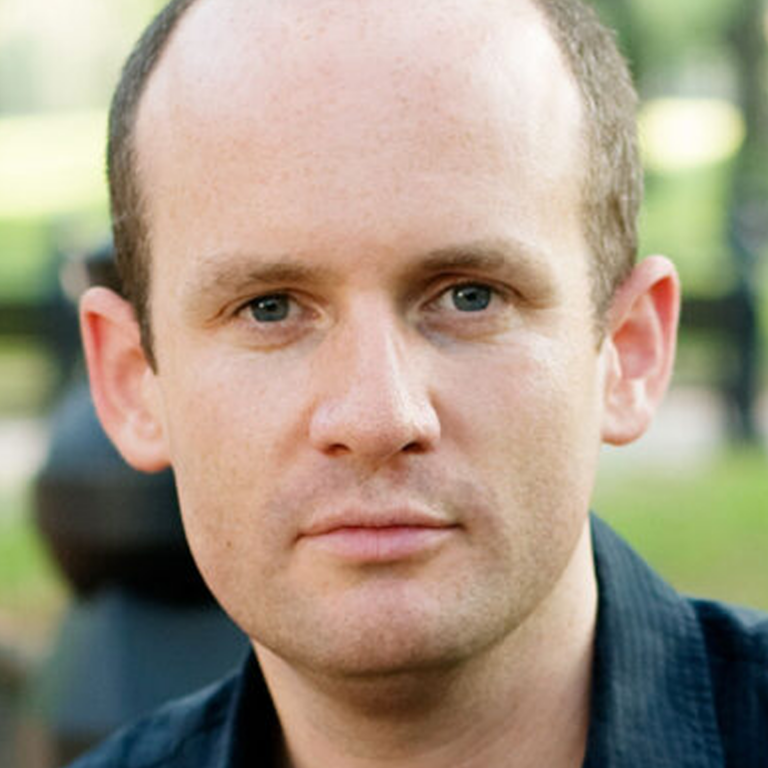Mourning, Lamentation, and Love
With Joanna Macy
“You’re always asked to stretch a little bit more. And actually, we’re made for that. In any case, there’s absolutely no excuse for making our passionate love for the world dependent on what we think of its degree of health … This moment, you’re alive.”
|
Question to Live
Can I stretch towards the love for the world on the other side of my grief? |
|
Integration Step
Carry Rilke’s words with you like a friend: “Move back and forth into the change.” |
| Heart of the Matter
That dance with despair, as Joanna describes. The way pain turns if we actually look at it, take it in our hands, be with it, and keep breathing. This analysis of grief is reminiscent of an idea in Christian theology that is about the move from grieving to mourning to lamenting. The invitation here is to cultivate that move inside ourselves and, for the sake of the world, to stand reverently with our grief, to let it turn to mourning and lament and something that brings us more deeply into our love. A muscular hope may not be possible without the capacity to make that move. And it is something we can and must practice. |

Transcript
Krista Tippett: Hello, again, as we continue to practice hope as a muscle. We’re in our last three sessions, and we are going to touch, in these sessions, on three more essential companions to hope: grief, gratefulness, and creativity.
Our teacher and inspiration for this session is Joanna Macy. What she embodies is a wild love for the world and a fierce hope that rises irrepressible from that. And she carries and lives an important reminder to us that when we love, we will also know pain, and we will know grief that can feel too heavy, too awful, to bear.
What is true in our individual lives is true also in our life together, civilizationally. The landscape you and I want to deepen, of goodness and muscular hope and generative living, is not born of abstract commitments. It’s about what we love — our communities, our children, humanity, the natural world.
That is a primary passion of Joanna Macy. She’s a philosopher of ecology, and she was an environmental activist before that term, environmentalism, had been coined. We have dwelt in this course on the awakenings of the needs for transformation and healing amidst our societal and racial chasms and cruelty. We are all, also, simultaneously with whatever other challenges we’re facing, living with the reality of ecological fragility and disarray and — and danger. And I believe that we are, each and every one of us, feeling that at a cellular level, whatever our belief systems are, whether it’s conscious, wherever we live. If in no other way, we are having to acknowledge it in the chaos of what we used to call “the weather” — the weather used to be the stuff of small talk, a comforting mix of predictable and surprising.
And when we talk about the muscle of hope being reality-based, that means that it does not call us to be brimming with optimism where that is not warranted. Joanna Macy is also a Buddhist teacher and scholar at this point in her life, and she actually says that within Buddhist teaching as she understands it, there is absolutely permission to not be brimming with optimism. What we’re called to do is be present, and when you’re present, there will be grieving to do, but that this — strangely, interestingly, kind of miraculously — increases our capacity to love this world, and it unleashes intelligence and ingenuity to sustain that love across a lifetime, as Joanna Macy has.
So before the part of my conversation with Joanna that you’re going to hear, she named the fact that one of the things we do that gets in the way of grieving as an expression of love is that we beat ourselves up for turning away from our pain at what’s happening in the world because it hurts too much. And part of our reorienting to being present to pain is that we get to show compassion towards ourselves.
Joanna Macy turns for companionship to the poet Rainer Maria Rilke. In this, she is a comrade to me. Rilke has been a friend to me across time and space, from my years of young adulthood in Berlin to now; Rilke who also was a citizen of a young century, as we are, that was full of turmoil and violence and unimaginable possibility. And you’re going to hear Joanna turn to Rilke and read from Rilke a poem that she herself translated.
Joanna Macy: And the kind of apathy and closed-down denial, our difficulty in looking at what we’re doing to our world, stems not from callous indifference or ignorance so much as it stems from fear of pain. And that was a big learning for me as I was organizing around nuclear power and around at the time of Three Mile Island catastrophe and then around Chernobyl. And so it relates to everything. It relates to what’s in our food, and it relates to the clear-cuts of our forests. It relates to the contamination of our rivers and oceans.
So that became, actually, perhaps the most pivotal point in, I don’t know, the landscape of my life, that dance with despair — to see how we are called to not run from the discomfort and not run from the grief or the feelings of outrage or even fear and that if we can be fearless to be with our pain, it turns. It doesn’t stay static. It only doesn’t change if we refuse to look at it. But when we look at it, when we take it in our hands, when we can just be with it and keep breathing, then it turns. It turns to reveal its other face.
And the other face of our pain for the world is our love for the world. Say you’re taking care of your mother, and she’s dying of cancer. You won’t say, “I can’t go in her house or in her room because I don’t want to look at her.” But if you love her, you want to be with her. When you love something, your love doesn’t say, “Well, too bad my kid has leukemia, so I won’t go near her.” It’s just the opposite.
Tippett: What is empowering in moments like that? And I wonder if Rilke comes to mind again, of how he was very clear about darkness as a part of life.
Macy: Ye, there’s a poem that has been — it’s a sonnet, and the very last sonnet to Orpheus that has entered my bloodstream that has helped me a great deal in this time. I will say it.
“Quiet friend who has come so far,
feel how your breathing makes more space around you.
Let this darkness be a bell tower
and you the bell. As you ring,
“what batters you becomes your strength.
Move back and forth into the change.
What is it like, such intensity of pain?
If the drink is bitter, turn yourself to wine.
“In this uncontainable night,
be the mystery at the crossroads of your senses,
the meaning discovered there.
“And if the world shall cease to hear you,
say to the silent earth: I flow.
To the rushing water, speak: I am.”
[music]
Tippett: That dance with despair, the way pain turns if we actually look at it, take it in our hands, be with it, and keep breathing. I think, when I hear this analysis of grief, I also think of an idea in Christian theology that is about the move from grieving to mourning to lamenting. I think of a conversation I had with the theologian Serene Jones, who has done a lot of work about trauma, as a theologian.
And here’s how she describes that turning — in different language, the same phenomenon. She says, “In trauma, one is able to come to grips with what happened, not resolve it, not fix it. But to move from grief to mourning is to move from a place of sheer loss to a place of acknowledging the loss. And this creates a space in mourning for you to make sacred the pain so that the rest of your life is transformed by it, allowing the possibility of a future.”
She said pure grief just locks you in the eternal present, and we have this fear that if we come to grip with horrors, they will kill us. And that’s not true. Instead, as Joanna says, there is a turning. You get set free by the facing and the telling of the truth.
And just to quote Serene a little bit more here, she said, “You can move into a place where it is something that you can find a place for in your soul and in your heart, but not in such a way that it immobilizes you, but actually propels you into the future, through love.”
The invitation here is to cultivate that move inside ourselves and, for the sake of the world, to stand reverently with our grief, to let it turn to mourning and lament and something that brings us more deeply into our love. I don’t think a muscular hope is possible without the capacity to make that move. And it is something we can and must practice.
In the Pause, we are going to meditate on all of this with that poem again that you heard in Joanna’s translation, in Joanna’s voice: “Quiet Friend.” I have kept this poem on my phone, on my computer, by my bedside, for years. It has been there for me. It is a friend.
I want to leave you with some words here of Joanna that came, also, in that conversation, which you might call a definition of muscular hope. She said, “You’re always asked to stretch a little bit more. And actually, we’re made for that. In any case, there’s absolutely no excuse for making our passionate love for the world dependent on what we think of its degree of health or whether we think it’s going to go on forever. This moment, you’re alive. So you can just dial up the magic of that at any time.”??
Take your time with all this beauty, and I will see you again when you’re ready to keep going.
